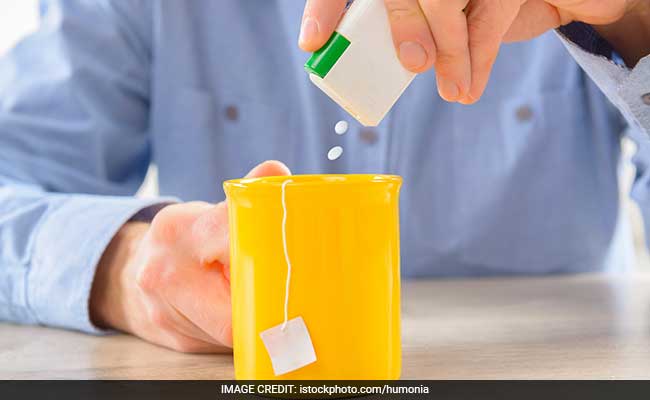
So in a bid to tackle the issue was introduced artificial sweeteners or sugar-free sugar. These tiny tabs provide the same amount of sweetness to your food but sans the added calories. As such more and more people began switching to artificial sweeteners to lead a healthier lifestyle. But again, various studies have brought to light the not-so-good side of these sweeteners stating that they disrupt the body's ability to regulate blood sugar, causing metabolic changes that could trigger diabetes. A recent study done by University of Sydney also warns that using artificial sweeteners while dieting may significantly increase the amount of calories consumed.
"Although originally considered benign, a growing body of research including our own makes clear a connection between artificial sweeteners, hunger and food intake," said Greg Neely, author of the study. Previous studies on flies and mice revealed chronic consumption of artificial sweeteners increase feelings of hunger due to a complex neuronal network that responds to artificially sweetened food by telling the animal it has not eaten enough energy. "To fully understand the impact of artificial sweeteners on overall health, we require further systematic investigation of these effects on metabolism."

Artificial sweeteners are derived from naturally occurring sugar sources
So what really are artificial sweeteners made of? They are synthetic sugar substitutes which maybe derived from naturally occurring sugar sources. For example, sucralose is derived from sugar, and similarly one can derive them from date sugar, honey, maple syrup, etc. Artificial sweeteners are actually many times sweeter than natural sugar, being intensely sweet. But unlike sugar, they come without added calories and you only require a small amount to add sweetness to your food. The FDA has approved five artificial sweeteners: saccharin, acesulfame, aspartame, neotame, and sucralose, which are considered to be safe for consumption. It has also approved one natural low-calorie sweetener, stevia.
But health experts warn that because artificial sweeteners contain no calories, most people feel that they can overindulge. Just because they have had a diet cola, they think that it's alright to enjoy a pastry or a doughnut. This mindset then leads to unnecessary calorie consumption, leading to health issues. Researchers also warn that because of their intense sweetness, frequent use of artificial sweeteners also leads to overstimulation of your sugar receptors thus diminishing the taste or appeal of naturally sweet foods like fruits, and other subtle flavoured ingredients. This could in turn make them seek more sweet tasting foods.
Track Latest News Live on NDTV.com and get news updates from India and around the world

